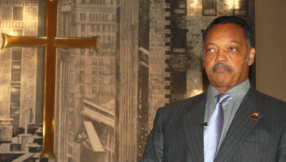The World Evangelical Alliance (WEA) is under pressure from member bodies in Catholic majority countries accusing it of abandoning its historic opposition to Roman Catholicism and theological liberalism.
In an open letter to the global body, which includes more than 100 evangelical organisations from 129 countries, the Evangelical Alliances from Italy, Spain and Malta say the WEA has an 'ecumenical agenda' that is contrary to that of its members.
The letter posted online by Evangelical Focus warns of increasing closeness to the Roman Catholic Church and the World Council of Churches (WCC). It says there has been a 'progressive implementation of an ecumenical agenda in WEA without proper discussion at a grassroot level and without involving the different parts of the Alliance in the decision-making process'.
It also says this 'ecumenical trajectory' is to reach a 'tipping point' in 2018 – a claim denied by the WEA – and says the signatories wanted to 'exercise responsibility' in 'protecting' the WEA.
The 14-page letter – also endorsed by the secretary general of the Albania Evangelical Alliance – acknowledges evangelicals' willingness to co-operate with Roman Catholics and liberal Protestants on social and ethical issues but says they have always rejected 'unity' not based on a common understanding of the gospel. It criticises the landmark 1999 Joint Declaration on the Doctrine of Justification, which represented a theological convergence between Catholics and Protestants, and criticised evangelical admiration for Pope Francis, accusing statements by the WEA and European Evangelical Alliance of a 'lack of theological discernment'.
Citing 'external sources', the statement says the WEA is 'about to sign a statement with the WCC and the Roman Catholic Church on unity, even on "greater oneness"! We are puzzled by what is happening. We see a radical shift taking place without any discussions, communication or helpful information, or a vote amongst WEA constituency.' It warns of this could be 'the beginning of the end' for the WEA as a historical evangelical network.
The WEA responded yesterday with a statement on its website from its secretary Bishop Ephraim Tendero flatly denying the claims that a joint declaration with Roman Catholics and the WCC was to be signed.
Tendero says the concerns expressed are 'being taken very seriously'. However, he says: 'I can confirm without a doubt that there are no plans to sign such a statement as described on page 7 of their open letter or anything that would resemble it.'
Tendero adds: 'We appreciate the zeal for theological integrity of these evangelical alliances and hope that they will contact us directly to learn more about our plans and activities. In the spirit of Matthew 18, it is the WEA's hope that we will soon be able to meet with those involved in the Alliances of Italy, Spain and Malta and to speak directly with them about these matters with the aim of Christian reconciliation and for the good of God's kingdom.'
The general director of the UK Evangelical Alliance, Steve Clifford, commented: 'We're aware of the concerns that several national alliances have raised around the World Evangelical Alliance's engagement with the World Council of Churches and the Roman Catholic Church. These concerns are not new and conversations have been taking place for some time.
'We recognise that for countries with a Catholic majority the relationship between evangelicals and Catholics is particularly sensitive and great care is required. We are encouraged by the response of the WEA and by their commitment to ongoing engagement with national alliances on this issue.'
The statement from the three Alliances reflects ongoing tensions within global evangelicalism, where some evangelicals see attempts at reaching a common understanding of disputed questions through theological dialogue as either doomed to failure or involving unacceptable compromise.













